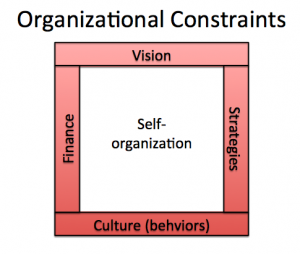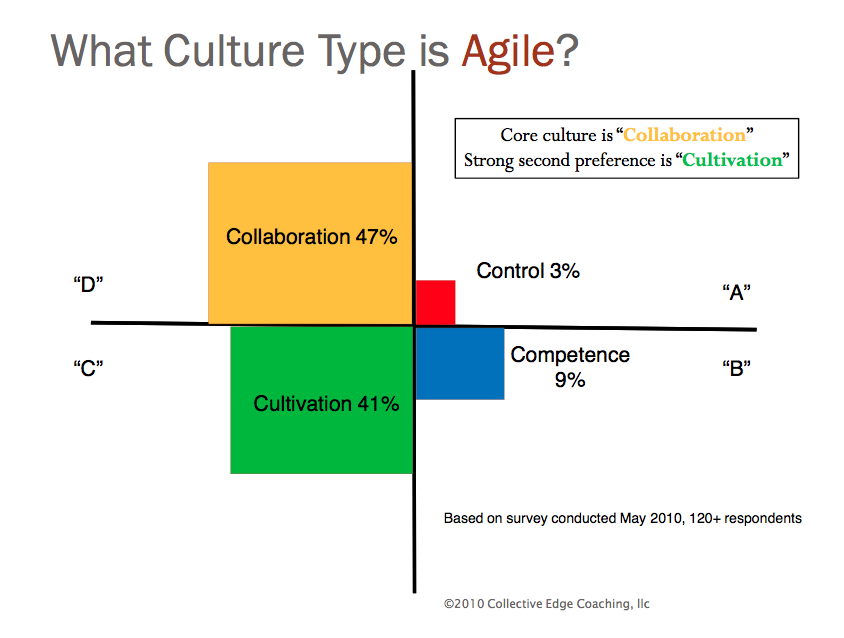There obviously isn’t a clear and straight forward answer to this question. The answer depends on the perspective of the person you ask and what they value. After working 10 years in corporate America, I came back almost 3 years ago to work for a smaller organization (less than 100 employees). Two of my colleagues (Yves and Ida) also recently made the switch. We got together to exchange our thoughts on why we believe working for a smaller organization is better for us.
Martin: You have spent a large part of your career working for large organizations, what struck you when you joined Pyxis?
Yves: One first obvious observation goes along something I experienced before in a young publicly traded technology startup (less than 100 employees). For a given amount of effort you invest towards an initiative, whether on a individual scale, with a group or at the enterprise-wide level, your ROI (Return on Investment) is quite higher in a small organization than in a large one. The outcome on the initiative may end up being very successful in both environments, but in the small organization context:
- The decision-making process will be faster and will involve less people;
- The frequency at which you will be able to challenge and refine a set of actions on your initiative will be higher. Furthermore, your chances for celebrating at the end increases accordingly;
- The whole initiative will execute at a faster pace and will complete sooner most of the time. Hence, a key variable inducing a positive impact is the reduced number of hand-offs between departments or people.
Ida: The first blatant differences I noticed were the lack of anonymity (you don’t feel like a number) and the lack of rules and regulations. The lack of anonymity puts you out there right away and is an enabler to allowing you to contribute and make a difference right off the bat. The fact that there aren’t many rules and regulations can also help in allowing you to make that difference faster, with no red tape to slow you down in your tracks.
Martin: Changing organization is an important decision that is usually done without having all the information. In hindsight, what information would have allowed you to make a better decision?
Yves: Organizational culture; without a doubt! Although I usually spend as much time being interviewed as making my very own due diligence on the organization, culture remains the number one factor for which you never get enough insights.
In an interview process, I do take extra care at being very transparent and straightforward on my value proposition. I do expect the same in return from the organization; and it is usually the case. However, the organizational part of the equation is far more complex than one individual being interviewed; putting everything he or she has on the table.
In hindsight, I do realize that most of my career changes would not have been different with more organizational culture intelligence at hand, so, same decision at the end. But gathering more info on that side of the story allows you to prepare yourself much better for the ‘culture tango’ coming at you.
Ida: From my perspective, I don’t feel that any additional information would have helped me make a better decision. The decision was a good one because of my mind set. I was ready for a change. I knew that a change in company or industry wouldn’t cut it, it had to be a bigger change of sorts, and ironically the BIG change translated into moving to a SMALL, privately owned company.
Martin: Many people who join smaller organizations feel more appreciated and a stronger sense of contribution toward the organizational goals. What are your thoughts on these?
Yves: Most of your actions in an smaller organization are very visible; for the better or for the worst… This allows you to have a positive impact towards your colleagues and the enterprise itself, without seeing all your efforts being diluted inside complex chains of commands, large hierarchies and impractical politics.
So, the visibility factor brings more appreciation and a stronger sense of contribution most of the time. It is actually a key attribute of smaller organizations, from my own point of view. This stimulates people at performing towards excellence, knowing their chances of being recognized for their hard work are quite high.
Ida: In a smaller organization, the impact is immediate. A decision can be made and an action is put in place. The lack of heavy hierarchies means that each individual is much more empowered to get things done and not necessarily have to wait for various levels of approvals as in large organizations. This empowerment is motivating, energizing and stimulating.
Likewise in a smaller organization, the breadth and depth of one’s responsibilitiesis usually much wider than in larger companies. This in itself provides additional satisfaction since people are not «boxed in» to a role that is strictly defined, allowing them the latitude to spread their wings.
Martin: What do you miss about working in a larger organization?
Yves: Sometimes, smaller organizations are facing challenges less prevalent in larger ones. For instance, financial stability may be a focus discussed over a monthly, or even over a weekly basis in a small company. Whereas in a larger organization, these matters will be discussed less often and more upon large-scale changes like restructuring plans and/or financial results being bellow expectations.
Furthermore, larger companies are having less of a hard time raising capital for their growing needs; in comparison with smaller organizations which are struggling a good deal in order to maintain an attractive balance sheet for banks and venture caps.
I still remember those funny days about 12 years ago; when it was so easy for startups to raise literally millions of venture cap out of PowerPoints or based on theoretical MBA classroom business cases. Hopefully these days are gone and we all now raise money based on common sense and sound financial practices. This however, illustrates how difficult it can be for a smaller organization to secure its financial future in 2011.
Ida: My answer to what I miss about a large organization is a two part answer, and each part contradicts the other, let me explain. Similar to Yves reply, financial stability is the most noticeable aspect that I miss. The luxury of knowing that there are enough funds to pay all expenses when they come in, invest in projects, expansions, acquisitions, etc. and be around in the long run, fosters an environment of growth, possibilities and positive reflections, in theory.
I say, in theory, because the existing reality in most large corporations, even though highly profitable, is the continual squeeze to do more with less. Hence the pressure is such that you are never profitable enough. It becomes an endless race. Factor into this internal pressure, pressures from the market and shareholders, legislation, the economy, and so on, and it becomes the endless race with umpteen hurdles. This is the part that I don’t miss, but it is very much tied to that financial stability I spoke of above.
Martin: Thank you Yves and Ida for sharing your thoughts on this topic. This was an interesting exercise. We may do this again in the near future.







Recent Comments